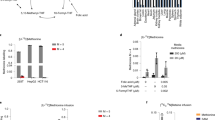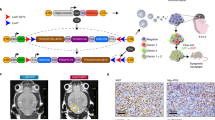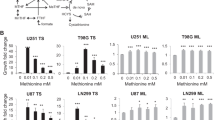Abstract
Methionine (MET)-dependent cell lines require MET to proliferate, and homocysteine (HCY) does not act as a substitute for this requirement. From six O6-methylguanine-DNA methyltransferase (MGMT)-efficient (mer+) cell lines tested, two medulloblastomas (Daoy and D-341) and a lung non-small-cell adenocarcinoma with metastatic potential (H-1623) were most sensitive to MET deprivation, while two glioblastomas (U-138, D-263) and a small-cell lung carcinoma H-1944 were moderately to weakly dependent. Regardless of the degree of MET dependence, all of these lines down-regulated their MGMT activity within 48-72 h of transfer from MET+HCY- to MET-HCY+ media, long before the eradication of the culture. Reduction of MGMT activity was due to a decline of both MGMT mRNA and protein levels. However, the reduction was not related to the methylation status of the MGMT promoter at the SmaI site or the HpaII sites in the body of the gene; such sites have been shown to be associated in MGMT regulation and in defining the mer phenotype. MET-dependent, mer+ tumour cells cultured in MET-HCY+ were more sensitive to BCNU (IC50 = 5-10 microM) than those cultured in MET+HCY-(IC50 = 45-90 microM), while MET-independent or mer- cell lines were unaffected. This indicates that reduction of MGMT, imposed by the absence of MET, renders mer+ tumour cells more susceptible to alkylating agents. The relatively selective suppression of MGMT activity in mer+ MET-dependent tumour cells, in combination with the inability of such cells to proliferate in the absence of MET, may lead to the development of more effective treatment strategies for mer+ MET-dependent tumours.
This is a preview of subscription content, access via your institution
Access options
Subscribe to this journal
Receive 24 print issues and online access
$259.00 per year
only $10.79 per issue
Buy this article
- Purchase on Springer Link
- Instant access to full article PDF
Prices may be subject to local taxes which are calculated during checkout
Similar content being viewed by others
Author information
Authors and Affiliations
Rights and permissions
About this article
Cite this article
Kokkinakis, D., von Wronski, M., Vuong, T. et al. Regulation of O6-methylguanine-DNA methyltransferase by methionine in human tumour cells. Br J Cancer 75, 779–788 (1997). https://doi.org/10.1038/bjc.1997.141
Issue Date:
DOI: https://doi.org/10.1038/bjc.1997.141
This article is cited by
-
Is DNA methylation the new guardian of the genome?
Molecular Cytogenetics (2017)
-
Investigating a signature of temozolomide resistance in GBM cell lines using metabolomics
Journal of Neuro-Oncology (2015)
-
Identification and characterization of a novel methionine γ-lyase gene from deep-sea sediment metagenomic library
World Journal of Microbiology and Biotechnology (2011)
-
Streptozotocin-resistant BRIN-BD11 cells possess wide spectrum of toxin tolerance and enhanced insulin-secretory capacity
Endocrine (2007)
-
High-level expression and bulk crystallization of recombinant l-methionine γ-lyase, an anticancer agent
Applied Microbiology and Biotechnology (2006)



